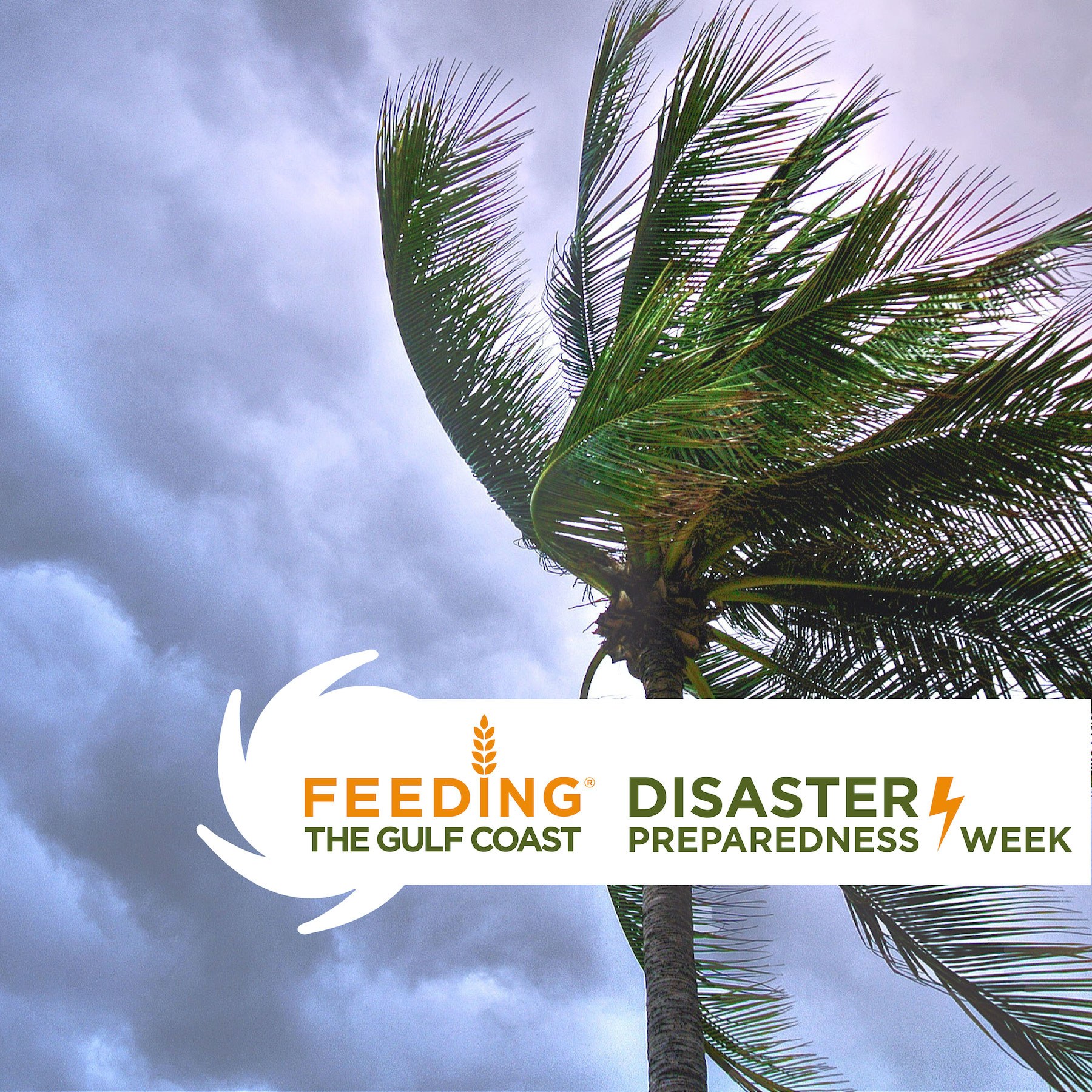
Feeding the Gulf Coast remains committed to being a source of help at all times, but especially during a disaster. Throughout the hurricane season, we will be actively monitoring the progress of weather systems and responding to the needs of our communities.
We work with our national, state, and local partners to ensure that we are positioned to provide emergency food assistance and other disaster relief supplies when needed. Food drives are a critical resource for us to prepare and stock up on essential items in the event of a disaster. If you or your company would like to host a food drive, contact Missy Busby to get started and check out our list of most-needed disaster relief items.
June 1 to November 30 is the official date range for hurricane season for our service area.
The National Oceanic and Atmospheric Association's (NOAA) Climate Prediction Center is predicting another above-normal Atlantic hurricane season. Forecasters predict a 60% chance of an above-normal season, a 30% chance of a near-normal season, and a 10% chance of a below-normal season. However, experts do not anticipate the historic level of storm activity seen in 2020. That being said, it certainly cannot be a guarantee that we will not have an active and dangerous season. Preparing should still remain a top priority.
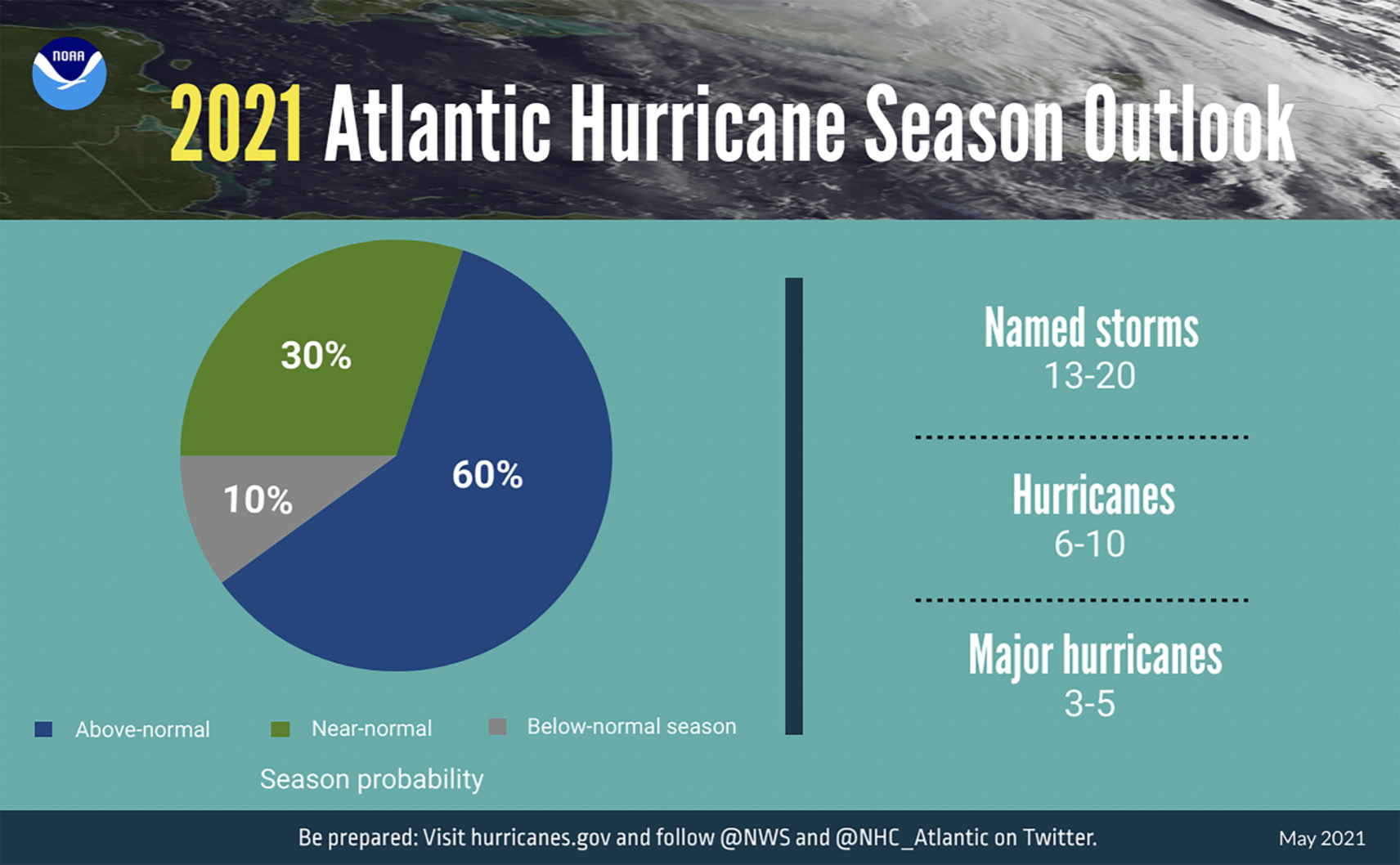
With many families and businesses remaining cautious and working through the challenges that the COVID-19 crisis has brought, and the changes that re-opening presents, we must not forget to be prepared for this year’s hurricane season.
Now is the time for communities along the coastline as well as inland to get prepared for the dangers that hurricanes can bring. The experts at NOAA are poised to deliver life-saving early warnings and forecasts to communities, which will also help minimize the economic impacts of storms.
- Secretary of Commerce, Gina Raimondo
With that in mind, let’s look at some tips and guidelines to help keep you safe this hurricane season:
Make A Plan
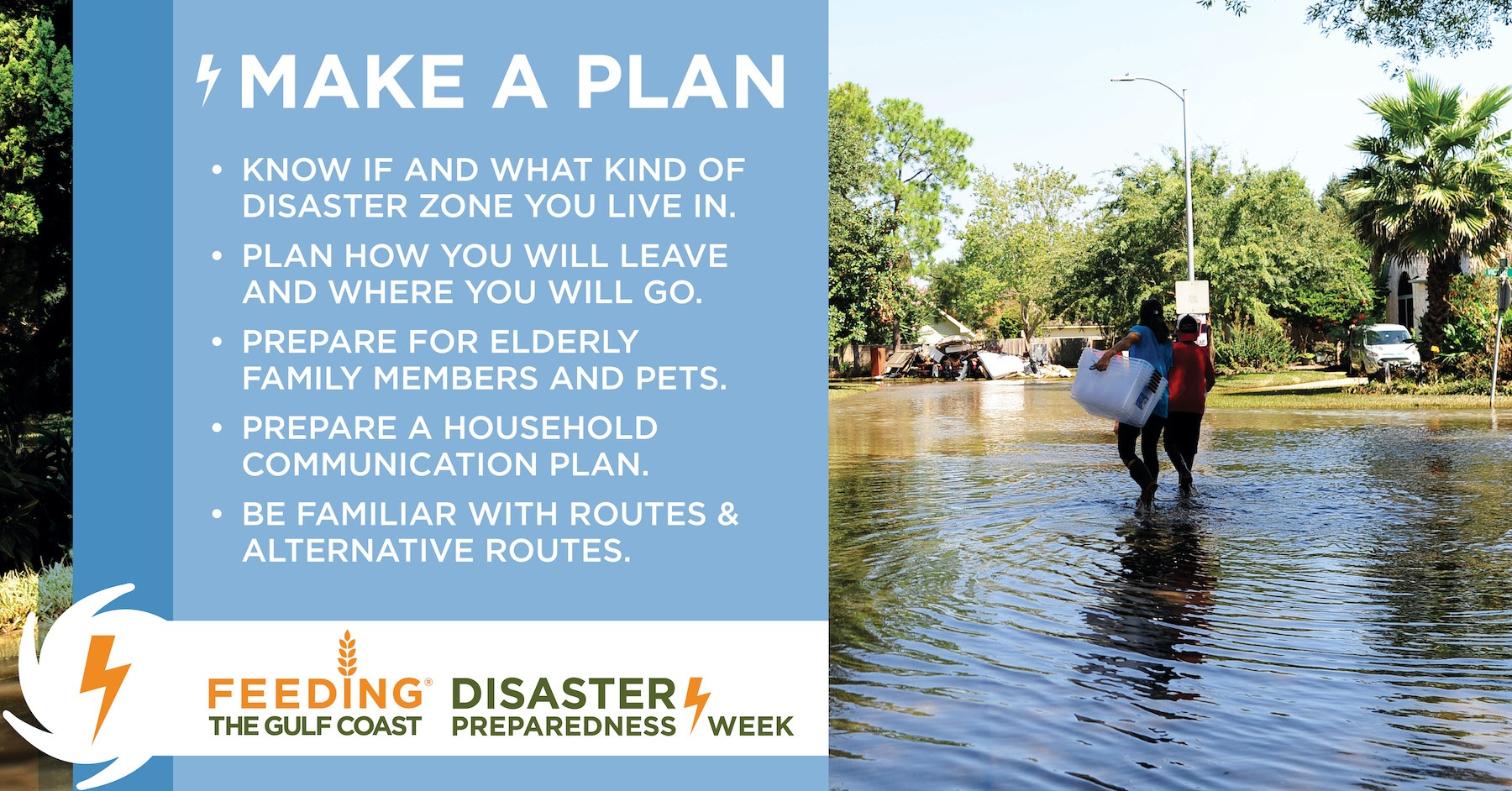
When thinking about where to go, keep in mind many places may still be closed or have modified rules and regulations due to the COVID-19 crisis. Keep up-to-date with the status of local shelters to see if they will be open should a storm make landfall, as well as what social distancing guidelines they may be putting in place.
Be sure to communicate your plan with everyone in your household and those outside of your household - like close friends and other family members - so they know where you will be. It is also a good idea to practice your plan! This way, should the time come, you will know exactly what to do.
As always, it is recommended to listen to local authorities on what is required in your area, should an evacuation be issued, as this could change your plans.
Build A Kit
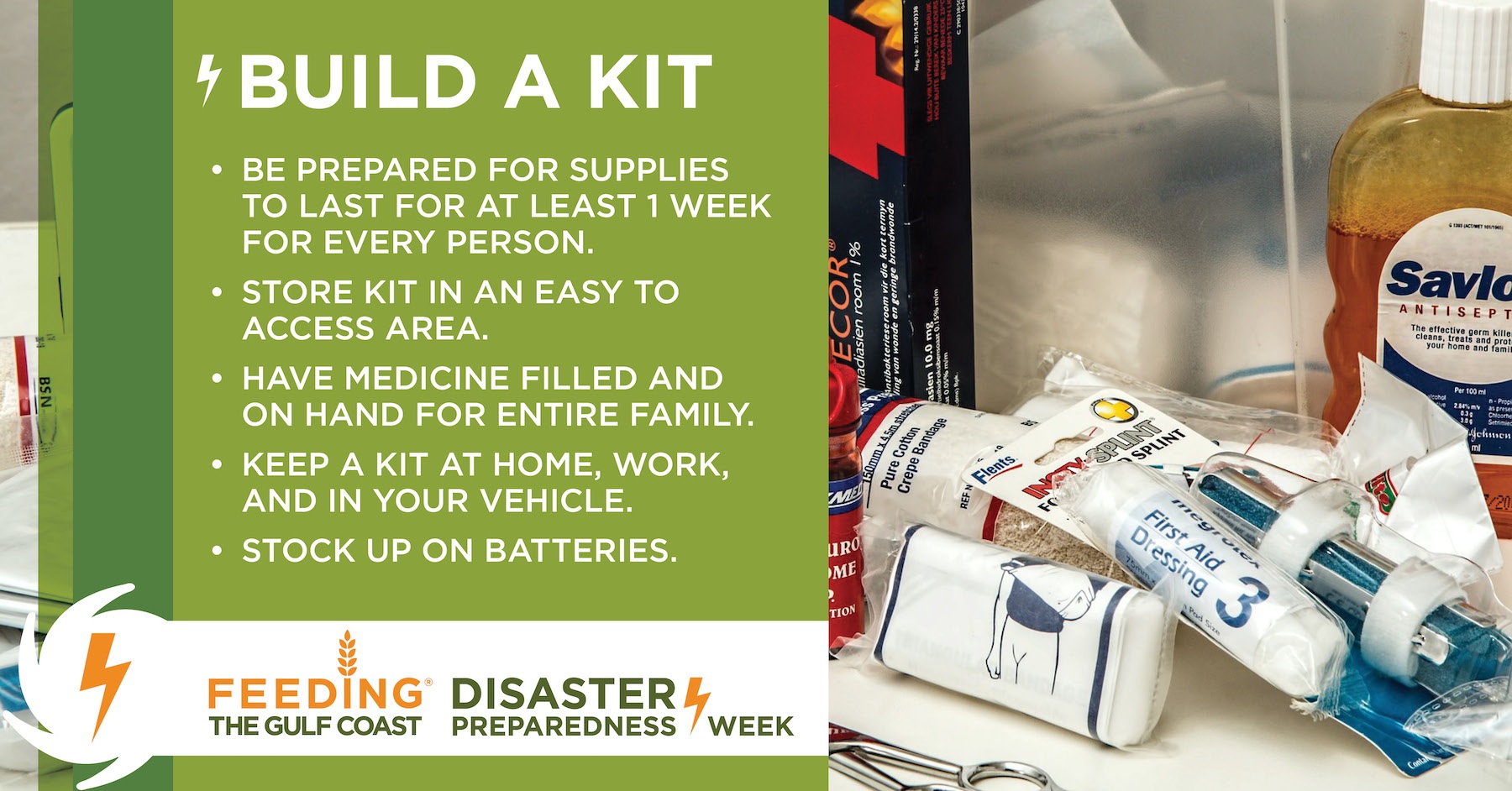
Ready.gov has a thorough list of items that should be in a disaster kit. Even though we are more than one year into the COVID-19 crisis, be sure to think about items needed as a result, such as hand sanitizer and cloth face coverings, which are recommended by the Centers for Disease Control (CDC). Consider the needs of all possible family members and friends that might take shelter with you, including pets.
Prep Your home
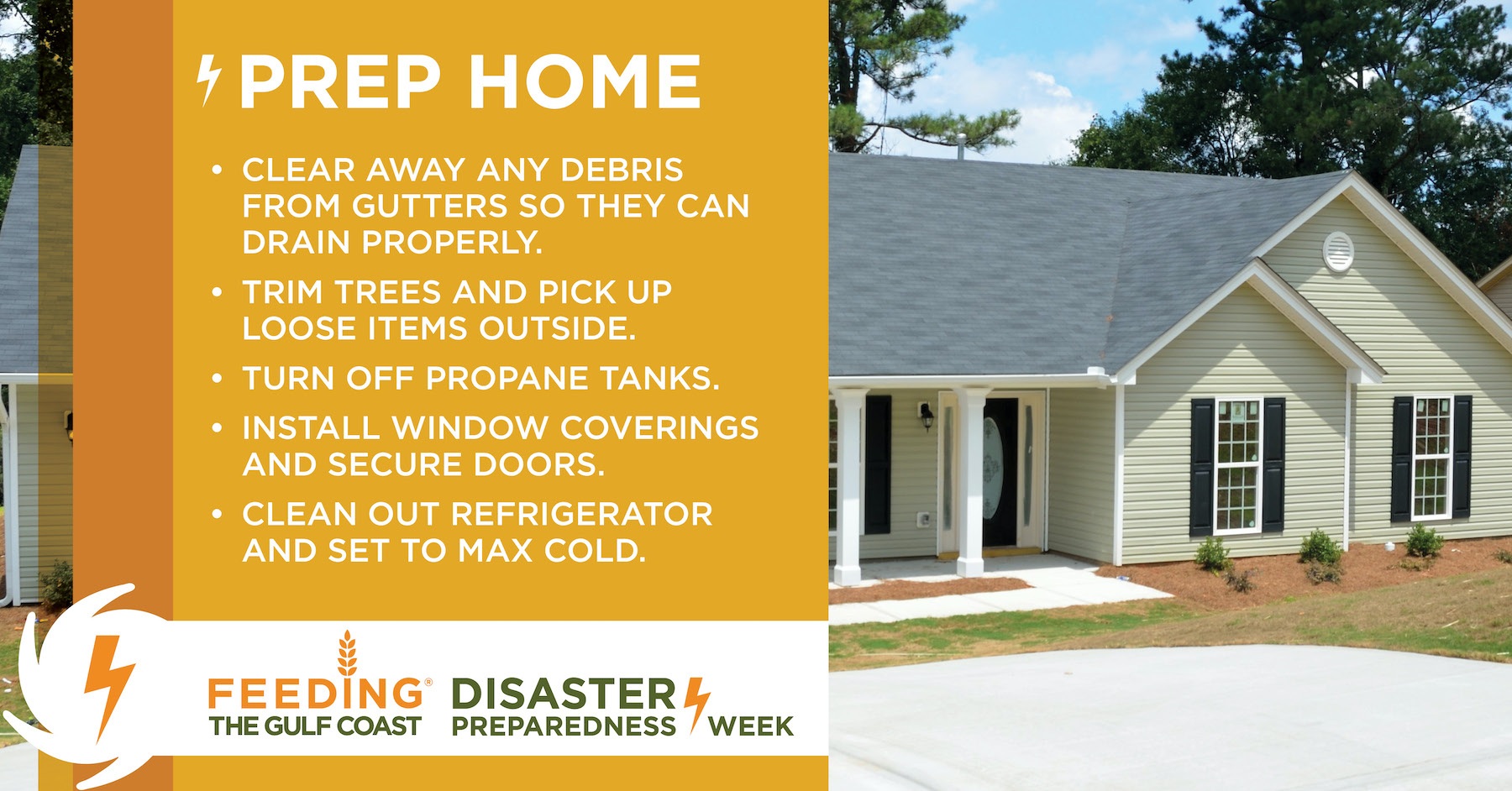
In some situations, your home may become your shelter. Therefore, it is important to ensure that it is as safe as possible for you and your loved ones to take refuge inside. A storm can bring high winds and flooding, so keep these things in mind while preparing your home.
Get Alerts
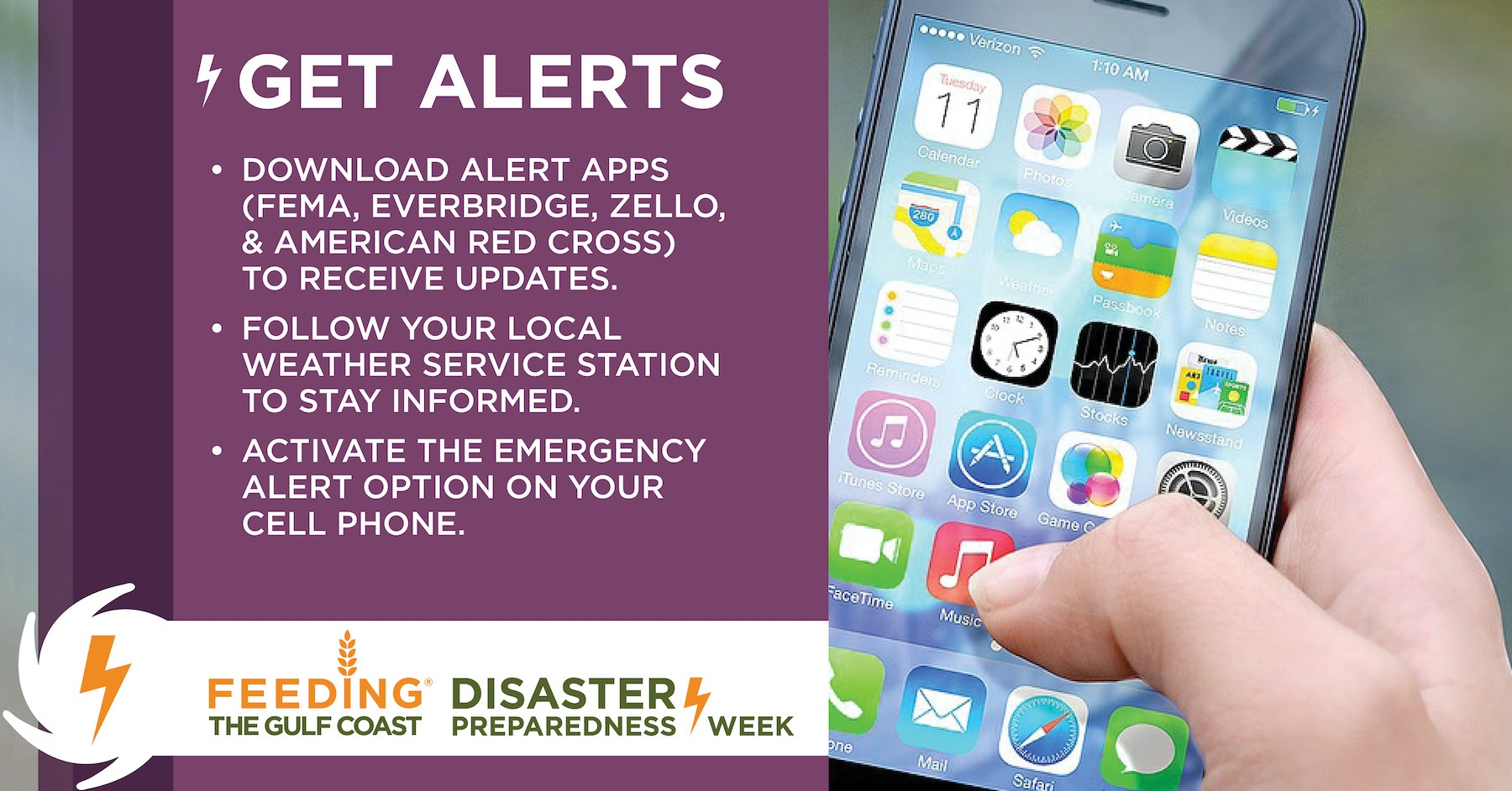
We are fortunate to live in a time where technology easily allows us to get immediate access to information. There are many weather apps available for your device. Go ahead and download a few to have ready should you need them as a storm approaches. Your local news may have an app as well, which can be a great way to receive important local information.
Emergency Alerts
http://www.nhc.noaa.gov
https://www.ready.gov/alerts
County Specific Alerts
Mobile County
Baldwin County
Escambia County
Santa Rosa County
Jackson County
Harrison County
Here are some other helpful resources:
- FEMA website and FEMA App
- NOAA
- The National Weather Service
- The National Hurricane Center
- Ready.gov
- American Red Cross
- Feeding the Gulf Coast’s Find a Food Pantry tool
As always, keep up with Feeding the Gulf Coast via our website and social media channels for the latest ways we are helping your communities.
